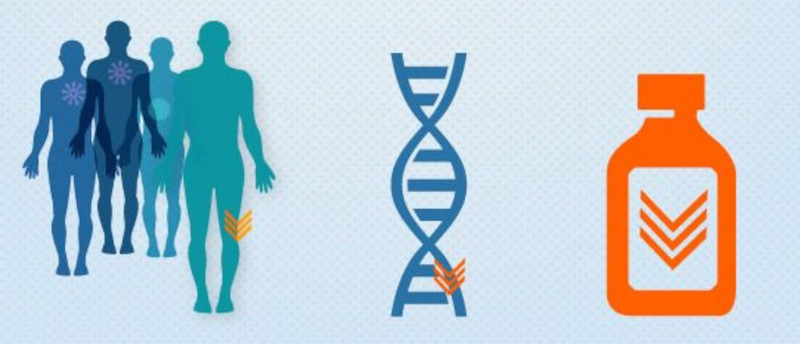Press Release: NCI-MATCH precision medicine cancer trial enrolling 7-8 new patients weekly

Interest continues in the NCI-MATCH trial. This ongoing study enrolls 85 percent of cancer patients referred by designated commercial and academic tumor gene testing laboratories (seven – eight new patients per week). Findings from substudy Y are being presented at an international meeting.
Philadelphia, Monday, November 12, 2018 — The ECOG-ACRIN Cancer Research Group (ECOG-ACRIN) is pleased with the continued interest in the NCI-Molecular Analysis for Therapy Choice (NCI-MATCH or EAY131) trial. This ongoing study enrolls 85 percent of cancer patients referred by designated commercial and academic tumor gene testing laboratories. This represents an enrollment rate of seven to eight new patients per week.
Tumor gene testing by one of these labs is the only way for new patients to enter the trial.
The trial is being co-led by ECOG-ACRIN and the National Cancer Institute, part of the National Institutes of Health. The objective of NCI-MATCH is to match gene abnormalities of tumors with suitable targeted therapy, regardless of cancer type. It is the largest precision medicine cancer trial in history. The trial has 39 single-arm phase two substudies under a master protocol. Link to the NCI-MATCH Searchable Spreadsheet to see the status of each arm.
The Dublin meeting will feature results from one of these substudies, Arm Y, which met its primary endpoint. This arm aimed to determine if the drug capivasertib could be used in patients with any type of cancer whose tumors have a mutation that leads the AKT molecule to become over-active and cause cancer growth. In a prior phase two trial, capivasertib showed potential in treating an aggressive form of breast cancer.
- Date: Tuesday, November 13
- Time: 3:05 – 4:50 PM (local time)
- Plenary Session One: Should we be conducting more genomics-driven, multi-arm clinical trials?
- At 3:10, Keith T. Flaherty, MD, study chair, will speak about NCI-MATCH
- At 4:10, Kevin Kalinsky, MD, MS, lead author, will present: AZD5363 (capivasertib) in Patients with Tumors with AKT Mutations: NCI-MATCH Subprotocol EAY131-Y, a Trial of the ECOG-ACRIN Cancer Research Group (Abstract One)
- At 4:25, Dr. Flaherty and others will participate in a panel discussion
How NCI-MATCH Identifies Patients
Oncologists commonly use tumor profiling in their daily practice to help guide clinical care and identify clinical trials for their patients. NCI-MATCH referrals are based upon each lab’s standard tumor gene tests ordered by physicians at the 1100 participating trial sites. This approach provides physicians with a portfolio of trials for their patients, especially those with tumors that have rare gene abnormalities. For these patients, treatment options may be particularly limited.
Trial leaders are casting a wider net for patients after their discovery in the first 6000 patients (tested centrally) that the tumor gene abnormalities of interest occur less frequently than expected. This is a signal-finding trial, and its leaders hope to identify patient and/or molecular factors that help discern which future patients may or may not respond to the drugs being studied.
For complete information on the process, link to the Genomic Testing section.
AstraZeneca provided capivasertib for Arm Y under a Clinical Trial Agreement (CTA) with the NCI. Capivasertib is not approved by the US Food and Drug Administration.
###
